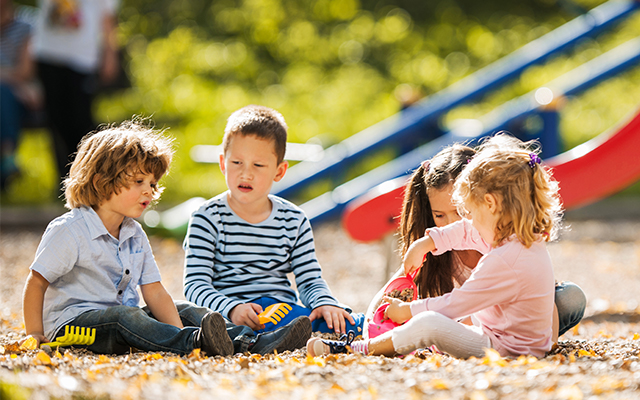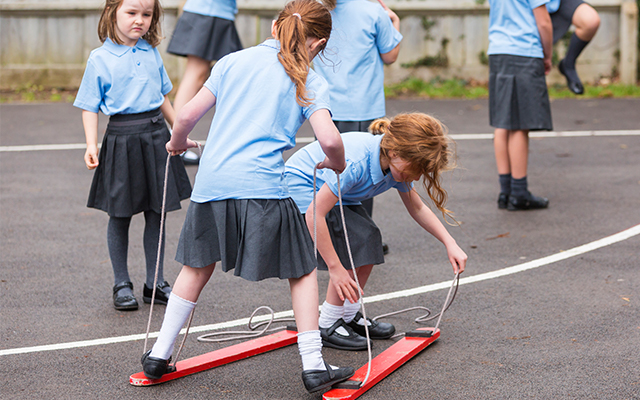To thrive, children need to play.
Play with this idea for a moment: the most important lessons of your child’s day might be recess and lunch time.
And there’s a good reason for that. A growing body of evidence suggests that play forms important building blocks to learning.
But the kind of ‘play’ that promotes basic learning is unstructured, undirected time where a child does something for simple enjoyment; it doesn’t require coaches or refs.
In his book Children at Play: An American History, Professor Howard Chudacoff of Brown Univesity argues that over the last forty years, the quantity of children’s play has been progressively decreasing.
In the race to produce more academically accomplished students, some schools have been cutting lunch times back to as little as twenty minutes, to make time for more lessons.
In his book Children at Play: An American History, Professor Howard Chudacoff of Brown University argues that over the last forty years, the quantity of children’s play has been progressively decreasing.
In the race to produce more academically accomplished students, some schools have been cutting lunch times back to as little as twenty minutes, to make time for more lessons.
But Professor Chudacoff says schools and parents need to find time more time for kids to play.

The value of play has been underestimated
Play to remember
“Nothing lights up the brain like play,” says Dr. Stuart Brown, psychiatry professor and one of the world’s leading researchers into the topic.
As founder of the National Institute for Play, Brown delivered the TED Talk ‘Play is more than just fun’. In it – along with his book Play – he outlines the essential role of play in brain development.
“Play fires up the cerebellum,” he says, “and sends impulses into the frontal lobe, helping contextual memory be developed.”
According to Brown, play is actually a biological mechanism that makes learning enjoyable. “Most of our fondest memories involve play because of its emotional connotations.”
Brown’s research indicates children’s brains develop through play in ways that would be impossible to repeat in a structured classroom environment.
Play to socialise
Another role of play is that it makes children more social.
“The function of play is to build social brains that know how to interact with others in positive ways,” says Jaak Panksepp, Professor of Integrative Physiology and Neuroscience from Washington State University.
His research shows that active play is key to helping children learn to navigate social interactions.
And the benefits of play don’t stop at fostering memories and enhancing social skills.

Play and a sense of fun are important both inside and outside the classroom
Play to succeed
Professor James Heckman, Nobel-Prize winning economist at the University of Chicago, argues that playing helps children develop crucial skills like curiosity, self-discipline, attention and motivation.
He says its these ‘soft’ skills – more than pure academic study – that will lead to a child’s success in later life.
According to Heckman, the social skills we develop through playing as children help us succeed individually and also make a positive contribution to our workplaces as adults.
So when you’re planning your children’s week, make sure you set aside plenty of time for play.


 has the facebook
has the facebook




